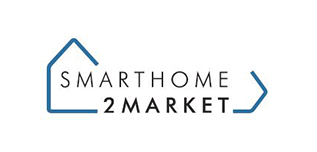Projects
Following projects were chosen for a sponsorship by the Federal Ministry of Economics and Energy within the scope of "Smart Home"
Smart Home + Building certification programme
Certification programme for smart homes
Brief description
In the "Smart Home + Building certification programme“ a new approach is to be developed for evaluating the comfort of smart home products that addresses both interoperability and IT security. The aim is to offer manufacturers a certification service and a quality seal for products which can strengthen the trust of the market in the systems on offer. Measures for further mobilisation of the smart home market will also be developed and a smart home community that covers all sectors will be set up.
The challenge
Smart home products are making their way onto the mass market. The first system solutions have reached market maturity, also from German suppliers. That being said, end customers are often hesitant to buy a smart home system because they are overwhelmed by the diversity of the different smart home solutions and technologies. The most important buying criteria for end customers are system scalability and user friendliness as well as privacy protection. There is a need for optimisation, especially when it comes to cross-system interoperability and IT security. Furthermore, the co-operation required here across different sectors is not sufficiently warranted.
Aim
The aim of the project is to develop an open networking concept, i.e. bridging technology, that is based on generally accepted standards. This should integrate the many existing and tried-and-tested systems and communications standards and also be able to embed modern (both present and future) all-IP-based systems. The test method drawn up in the project should serve as a basis for testing and demonstrating the technical feasibility of interoperability, IT security and data protection. Measures for further mobilisation of the smart home market must also be developed and a smart home community that covers all sectors set up.
Methodology and technologies
In cross-sector co-operation, companies and initiatives are working on the technical foundation for interoperability and IT security. With the "use-case methodology" that has been tried and tested during DKE's standardisation work, the technical requirements for interface signals and functions will be derived from participating companies' application scenarios. Using these requirements, DKE will draw up so-called VDE application rules for cross-system interoperability. These should be quickly transposed to international and open standards. Furthermore, IT security scenarios will be analysed and this will be used to derive standards and specifications for IT security requirements. As a technology partner in this project, VDE Prüfinstitut will create an interoperability test suite. A platform will also be set up to verify IT security and data protection compliance of smart home products. Together with the participating companies, the cornerstones of a "smart home ready" seal will be defined which will confirm successful testing of interoperability and IT security according to the applicable standards. In the future, manufacturers of smart home products can voluntarily apply to the organisations that have yet to be established in order to receive the seal. In addition to this, measures will be drawn up and published together with the companies in the project so that the smart home market can be mobilised even further.
Partners: VDE Verband der Elektrotechnik, Elektronik und Informationstechnik e. V. (Konsortialführer), Connected Living e.V., DAI-Labor, Deutsches Dialog Institut DDI, Kellendonk Elektronik GmbH, VDE Prüf- und Zertifizierungsinstitut gGmbH
- Recommend this page:
- Print view
